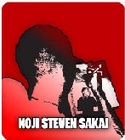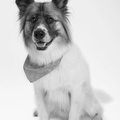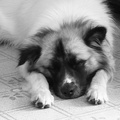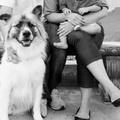Since we are both humans, I assure you we are the same. The same DNA, RNA, and cells. If not exact copies, close replicas. Then what is it about me that causes you to treat me differently than one of your own?
Being here, standing in line with you at the store, walking behind you in this mall, sitting next to you at the food court, you act as though I am foreigner – when I know no other country. Your owl eyes follow me, acting as a subconscious messenger: telling me without words that I am an unwelcome neighbor. And as more people that happen to share my physical traits move in, the more open the hatred becomes. I can almost hear you think, “They’re taking over our city! How dare them! We were friendly enough to allow them here in the first place.” Your eyes soon disappear, making the mono-ethnic city one race again. Except this time, they look more like me than you.
When we do interact, like we did last weekend, I realize I am a circle in a square’s world. Because of the way my eyes are slanted, the yellowness of my skin, the strangeness of my name, you inevitably ask: “Where I am from?” I know you are wondering my ethnicity or what country my mother and father were raised, but I answer as though I misunderstand: “Los Angeles.” Then inevitably, you chuckle to break that feeling of prejudice, and ask the same question, this time adding a single word: “Where are you really from?” And I smile, think for a moment, laugh to myself, and answer: “I’m from Antarctica.” You laugh because I’m making a joke and I correct myself and say the answer you’ve been looking for the whole time: “Japan.”
My answer causes a figurative light bulb to appear over your head as the word “Japan” escapes from my mouth. You are quick to smile, think for a second, laugh louder than the first time, shake your head, and declare: “I like you; you’re not like the rest of them.” I want to ask who the rest of “them” are but I already know.
I’ve been told that before. Told that I was “good” because I was Americanized. Of course, this same trait has led me to be called: Twinkie, banana, and even once a chocolate covered banana by other less Americanized Asians who didn’t see it as a good thing.
But I digress.
None of this so far is all that surprising. These are the same kinds of things that I (and anyone of color) get from the clueless and the ignorant. What really surprised me was your next question: “Do you know a good sushi place around here?”
I was shocked because I’d never been asked that before by a stranger. I answered and told you a good Japanese restaurant a couple blocks down the street. It wasn’t until my non-Asian friend asked if I had been offended did I think to be offended. But then I wondered, should I have been offended?
My first instinct was not to be. You just wanted to know if I knew any good sushi places. You could have asked me if I knew a good Mexican restaurant or pancake house in the area. I do on both accounts. It just so happened that you asked me about sushi and I happened to be of Japanese descent. What a coincidence!
My friend was quick to point out, however, that you only wanted to know a good sushi place after you found out where my family had originally come from. This in addition to the fact that you don’t know me was enough to make my friend suspicious.
When I got to really thinking about it I realized what you were really doing: communicating subtly that you do not accept me as coming from the same American culture as you.
Realize this; I’m a fourth generation American Japanese. Which means my father, and his father, and his father, or my great-great-grandfather came to this country seeking the American pipe dream. My roots should make me as authentic American as those who came from Europe. Yet in a police line up, with me next to any of them, I would be the enemy spy trying to steal nuclear secrets.
In every way, I am an American, and NOT a foreigner. I have eaten my share of hamburger, fried chicken, hot dog, and pop. I have watched too much television and am a huge baseball fan. And like everyone else, dissatisfied with the government. Yet as much as I try to convince you, none of this will matter.
Once you see the way my eyes are slanted, the yellowness of my skin, the strangeness of my name, you will automatically think sushi. I wonder if you would have been offended if I asked you where the nearest McDonalds was.
© 2007 Koji Steven Sakai






